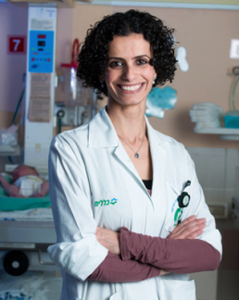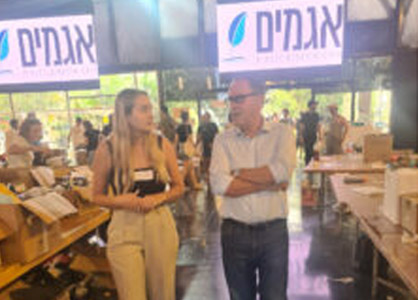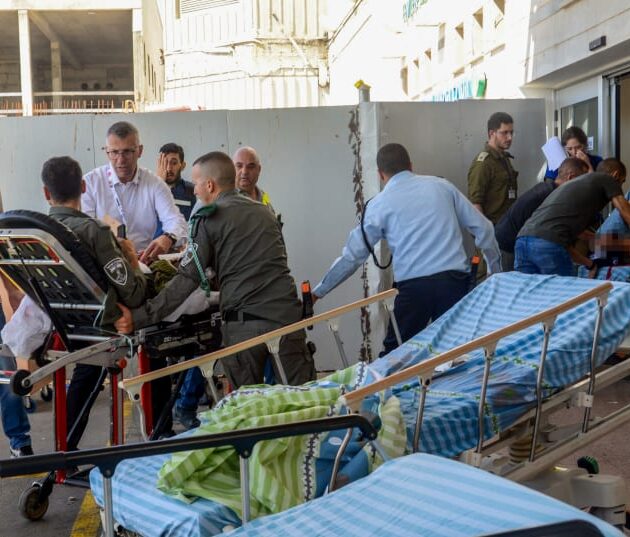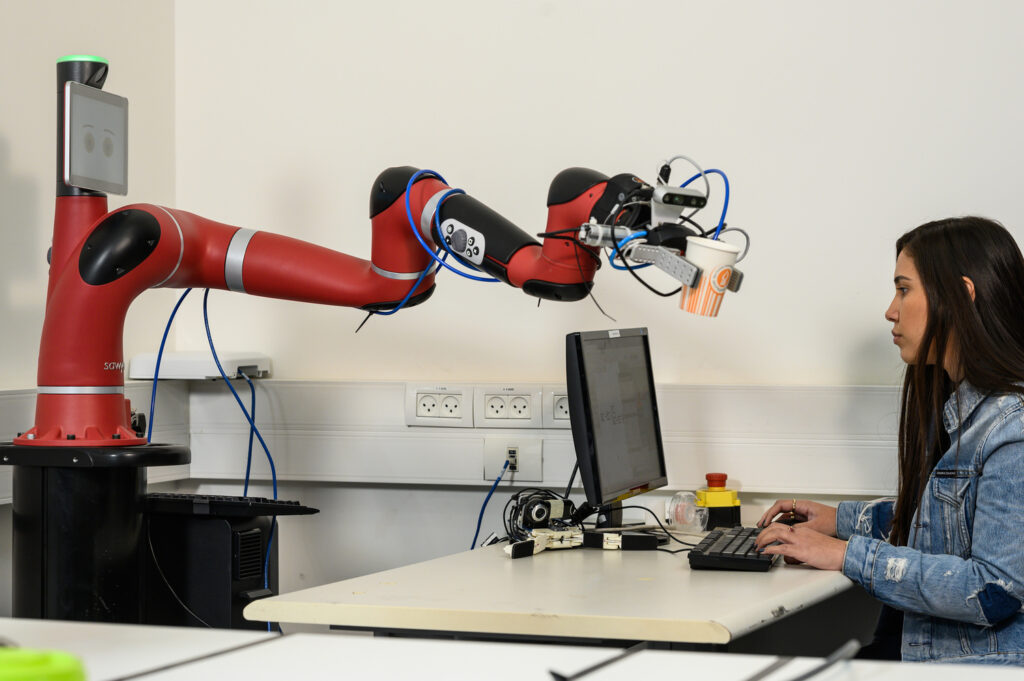
Dr. Rania Okby, a Bedouin Woman Role Model
Dr. Rania Okby, a Bedouin Woman Role Model
April 18, 2014
Negev Development & Community Programs
JNS — Growing up female and Bedouin can present many challenges. Even today, Bedouin society lacks a strong educational system, supports forced marriages of underage girls, and places cultural restrictions on women working outside the home.
At the same time, there are programs like BGU’s Robert H. Arnow Center for Bedouin Studies and Development that are beginning to change Bedouin lives for the better. When the center was founded in 1997, there were no Bedouin women studying at BGU.
“If you saw a person fall, wouldn’t you help them get up?” asks Robert H. Arnow, who helped found the center and over the years invested significantly in scholarships and support services for Bedouin students, with an emphasis on women. Today, more than 60 percent of the 268 Bedouin students seeking their first degree at BGU are women.
“That’s how I pictured the Bedouin community. Someone needed to help them,” says Arnow.
An example of a Bedouin success story at BGU is Dr. Rania Okby, the first female Bedouin physician in the world. Dr. Okby represents the convergence of two worlds: ancient Bedouin tradition and modern Israeli society. She was able to graduate in 2004 thanks to the outreach program offered by BGU. Of course, her journey was not without challenges.
During her studies, Rania Okby moved back and forth between her home and the University. “It was the most difficult thing,” she says. “From 8 a.m. to 4 p.m. I was in the Western world and from 4 p.m. until the next day, the traditional world. It creates a lot of conflict.”
Dr. Okby recalled feeling immense pressure to succeed, believing that if she failed during her first years of study then perhaps no other Bedouin woman would have the courage to accomplish what she ultimately did.
She chose to go into maternal fetal medicine because she fell in love with the “beautiful cycle of pregnancy to birth” during her first year as a medical student. In this role, however, she has found other benefits, including the ability to influence her society.
Dr. Okby says she serves as an informal psychologist, sociologist, counselor, and social worker, and that her Bedouin patients feel comfortable opening up about their marital issues and other concerns because they trust her.
“I have a very important role. When I talk with [my patients], I bring examples from our tradition, and then they listen to me more. For example, if a Jewish doctor says, ‘You shouldn’t have any more children,’ they think she says this because of the demographic threat. When I say it, they think, ‘She really cares about my life and my health,’” she says.
Dr. Okby noted that the birth rate in the Bedouin community averages six children per woman, and many raise their children too close together to be healthy.
Rafi Rone, director of Jewish and Israel Initiatives at the Joseph and Harvey Meyerhoff Family Charitable Funds, said there is a strong correlation between having positive role models and success among women.
“I hear a lot of women saying, ‘I want my girls to become like you.’ They are proud and happy to have me as their doctor,” says Dr. Okby, who believes she is representative of a new generation of Bedouin women.
“There is new generation that really wants to move forward,” says Rone, noting that the Meyerhoff fund has made Israeli-Arab access one of its many overseas priorities.
Read more of this story by Maayan Jaffe on JNS.org >>
Established in 1997, the Robert H. Arnow Center for Bedouin Studies and Development has helped Bedouin students at BGU successfully navigate their academic careers. Now, when you contribute any amount to the Robert H. Arnow Bedouin Scholarship Matching Program, your gift will be matched dollar-for-dollar by the Arnow family of New York. Donate to the Bedouin Scholarship Matching Program now >>




